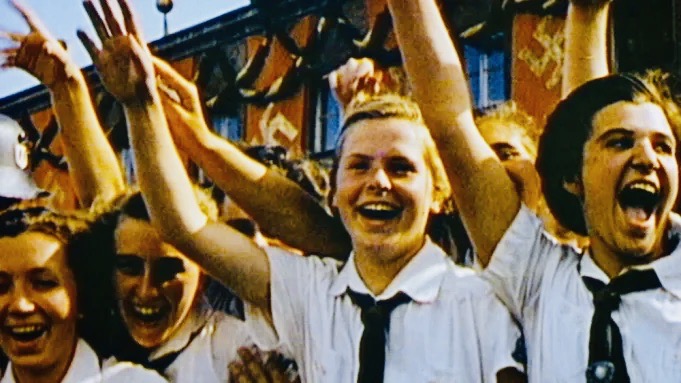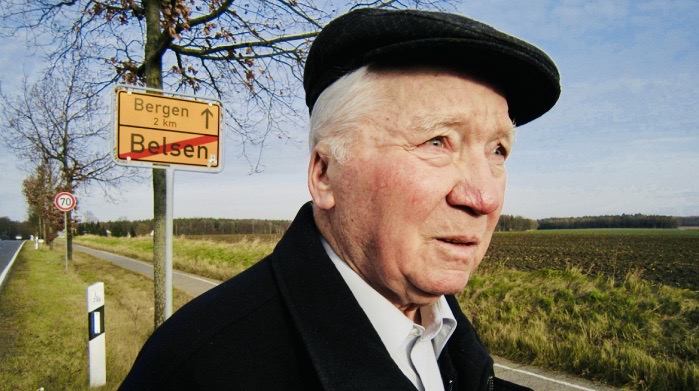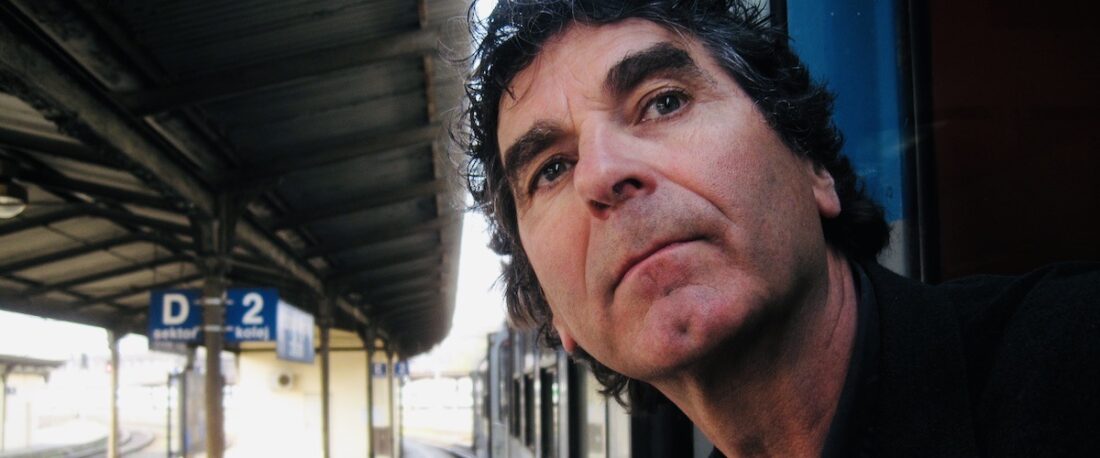Luke Holland’s frank and sober movie, Final Account, deals with two under-documented facets of the Holocaust — the German perpetrators who carried out their crimes and the bystanders who passively watched them happen. Now available on Netflix, it unfolds against the backdrop of mounting antisemitism in Nazi Germany and the eruption of the Kristallnacht pogrom, a prelude to the mass murder of Jews in Nazi-occupied Europe.
Archival footage from that period sets the deadly tone. Hostile signs in German towns and forests advise Jews they are not welcome to visit. Young German men block shoppers from entering Jewish-owned shops. Flames consume synagogues in the nation-wide pogrom that swept through Germany on November 9 and 10, 1938.
At the core of the film are interviews that Holland conducted with aging former members of the Hitler Youth, the Association of German Girls and the Waffen-SS. Their comments convey a mixed picture of compliance with and indifference and shame toward Nazi atrocities.

Unrepentant Germans stubbornly cling to self-serving myths, revealing deep-seated antisemitism and an abiding faith in the correctness of Nazi ideology.
Their mantras are disturbing: German Jews were “unpopular” because they engaged in “deal-making.” They had hooked noses. Jews smelled and were dirty. They could be blamed for everything unpleasant. Kristallnacht was a crime from only a narrow legal point of view. The Waffen-SS served on the front lines and had nothing to do with Nazi crimes against humanity. The Holocaust never happened. The SS was not a criminal organization. Adolf Hitler was a great man. Jews should have been driven out of Germany rather than murdered.
Germans who are torn by guilt give Holland hesitant answers.
A guard in the Sachsenhausen concentration camp knew he had committed crimes, but “went along” so as to fit in with his comrades. A woman confesses that she is ashamed of the concentration camp in which she worked as a bookkeeper, but quickly adds that she played no role in the mistreatment of its inmates.
Other Germans readily confess their guilt.
A Waffen-SS soldier almost tearfully admits that his unit wiped out a village in Hungary. Another former SS man acknowledges that he belonged to a “murderous organization.”

“We were complicit,” says a man.
“I’m ashamed something like this happened in the name of Germany,” murmurs a woman.
“We let it happen,” confesses another woman.
Still other Germans disingenuously claim they “didn’t know” what transpired during that period.
Final Account fills in crucial aspects of the Holocaust that are often glossed over or simply unmentioned. In this respect, Holland’s film is edifying and useful, a stark record of an era when the lowest human impulses and instincts ran riot.
